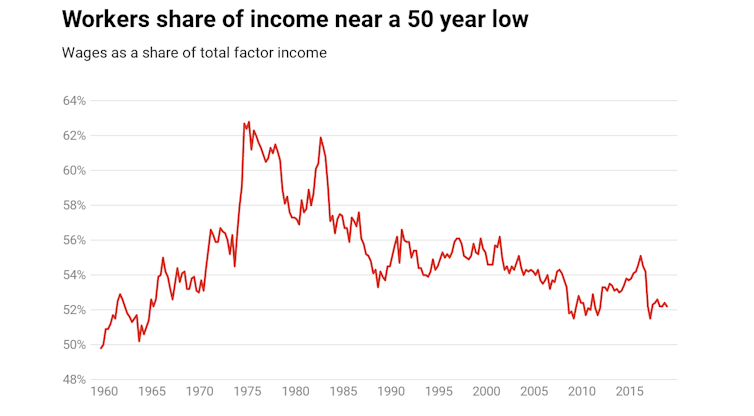New research in the northern part of Greenland finds temperatures are already 2.7 degrees warmer than they were in the 20th century
The coldest and highest parts of the Greenland ice sheet, nearly two miles above sea level in many locations, are warming rapidly and showing changes that are unprecedented in at least a millennium, scientists reported Wednesday.
That’s the finding from research that extracted multiple 100-foot or longer cores of ice from atop the world’s second-largest ice sheet. The samples allowed the researchers to construct a new temperature record based on the oxygen bubbles stored inside them, which reflect the temperatures at the time when the ice was originally laid down.
“We find the 2001-2011 decade the warmest of the whole period of 1,000 years,” said Maria Hörhold, the study’s lead author and a scientist at the Alfred Wegener Institute in Bremerhaven, Germany.
Because warming has only continued since that time, the finding is probably an underestimate of how much the climate in the high-altitude areas of northern and central Greenland has changed. That is bad news for the planet’s coastlines, because it suggests a long-term process of melting is being set in motion that could ultimately deliver some significant, if hard to quantify, a fraction of Greenland’s total mass into the oceans.
Overall, Greenland contains enough ice to raise sea levels by more than 20 feet.
MELTING ICE IN GREENLAND HUGE CONCERN
The coldest and highest parts of the Greenland ice sheet, nearly two miles above sea level in many locations, are warming rapidly and showing changes that are unprecedented in at least a millennium, scientists reported Wednesday.
That’s the finding from research that extracted multiple 100-foot or longer cores of ice from atop the world’s second-largest ice sheet. The samples allowed the researchers to construct a new temperature record based on the oxygen bubbles stored inside them, which reflect the temperatures at the time when the ice was originally laid down.
“We find the 2001-2011 decade the warmest of the whole period of 1,000 years,” said Maria Hörhold, the study’s lead author and a scientist at the Alfred Wegener Institute in Bremerhaven, Germany.
Because warming has only continued since that time, the finding is probably an underestimate of how much the climate in the high-altitude areas of northern and central Greenland has changed. That is bad news for the planet’s coastlines, because it suggests a long-term process of melting is being set in motion that could ultimately deliver some significant, if hard to quantify, a fraction of Greenland’s total mass into the oceans.
Overall, Greenland contains enough ice to raise sea levels by more than 20 feet.
MELTING ICE IN GREENLAND HUGE CONCERN










